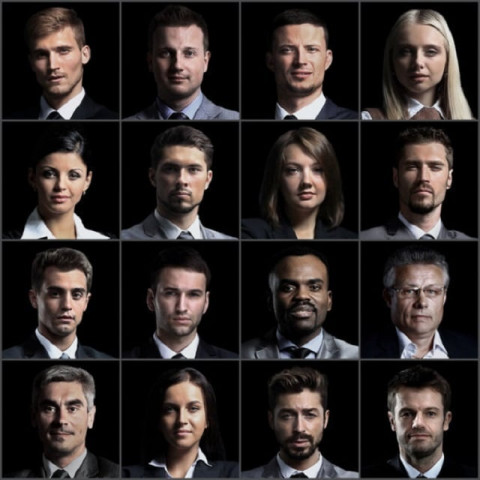Our faces reveal whether we're rich or poor
Study says rich faces are more likely to be hired for a job compared to poor ones

People can tell if someone is richer or poorer than average just by looking at the person's 'neutral' expression, a recent study suggested.
The study was carried out by psychology researchers at the University of Toronto's Faculty of Arts and Science. It revealed that people may be biased and rich faces are more likely to be hired for a job in comparison to 'poor' ones.
The paper published in the Journal of Personality and Social Psychology by Associate Professor Nicholas Rule and PhD candidate Thora Bjornsdottir said, "It indicates that something as subtle as the signals in your face about your social class can actually then perpetuate it. Those first impressions can become a sort of self-fulfilling prophesy. It's going to influence your interactions, and the opportunities you have."
Research-based studies to highlight women’s issues
Researchers also found that social class could only be read by people with a 'neutral' facial expression rather than when they were smiling or have any other expression on their face.
They concluded that emotions mask life-long habits of expression which are etched on to a person's face by the time they are entering their late teens or early adulthood.
"Over time, your face comes to permanently reflect and reveal your experiences and even when it is not expressing something the relics of these emotions are still there."
Researchers grouped student volunteers in two groups, one of them with family incomes as below $60,000 and the other with incomes above $100,000 and had them pose for photographs with neutral expressions.
UNESCO to fund water research
They then asked a group of participants to look at photos and use their gut instinct to decide whether someone was rich or poor. As a result people were able to determine which students belonged to a rich or poor group with about 53% accuracy.
Meanwhile, results were not affected by the person's race or gender, or the amount of time people were given to judge the face.
"There are neurons in the brain that specialise in facial recognition. The face is the first thing you notice when you look at somebody," said Nicholas.
With 43 muscles concentrated in a comparatively small area, facial expressions are one of the most intriguing areas in the field, researchers said.
This article originally appeared on Science Daily.



















COMMENTS
Comments are moderated and generally will be posted if they are on-topic and not abusive.
For more information, please see our Comments FAQ